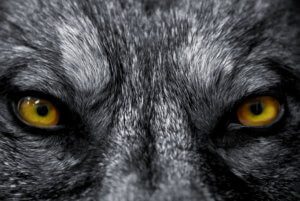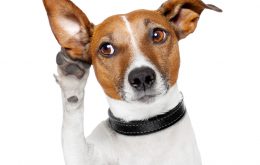
If you’ve ever seen one of those “When Animals Attack,” reality television shows, you know they’re based on stories and sometimes graphic video footage of animals attacking people. Sometimes the result is humorous, with the human simply being embarrassed by the encounter. Other stories end in tragedy.
Many who watch these shows walk away concluding that the animals were at fault. In my opinion, the human involved causes about 99% of these attacks. What kind of knucklehead decides to walk up and try to pet a bear and her cub or a mother moose and her calf? Even in those tragic situations where children are hurt by animals, domestic or otherwise, it’s usually an adult human who is at fault, not the animal.
The problem with the knee-jerk reaction of blaming others, human or otherwise, when situations “go bad” is that most people never seem to get around to looking at the possibility that they might be the cause, or at least part of the problem.
Back when my daughter was in college, I highly encouraged her to take an interpersonal communication course because I believe understanding human communication and developing great communication skills are critical to success in life. In the second week of the course, her professor assigned a “Self Analysis Paper.” They’d only covered two chapters in class and were only two weeks into the semester and the professor was basically sending the message, “If you want to understand communication and relationships, you have to take a look at and understand yourself first.”
What a novel concept! If you want to understand how communication works (or doesn’t), take a look at yourself first! Understand why you think the things you think and feel the things you feel, and thus say the things you say, and act the way you act, BEFORE you start trying to figure out why and how the other person is flawed and therefore to blame for the communication failure.
Just like the humans who only look outward and blame animals for an attack, we all need to stop looking outward when there’s a communication failure, and instead, pause and analyze ourselves and our role in the situation first.
• What was my role in the communication failure?
• Why did I act or react the way I did?
• What caused me to feel the way I felt?
• What responsibility can I take?
• How can I do better next time?
• What can I do and say differently next time?
• How can I improve my skills (communication, conflict, and other relationship skills)?
• What can I do to make my relationships better?
The answers to questions like these will not only become more self-aware, but can be acted upon and even shared with others to take the first steps in understanding and improving our relationships.






